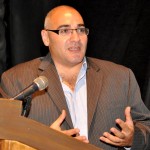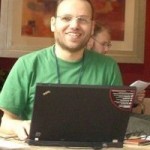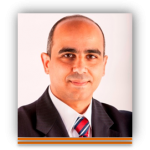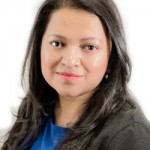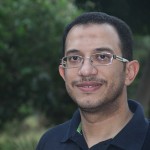Develop
Day 1
28 May 2016
Day 2
29 May 2016
Software Engineering, What And Why
Prof. David Parnas
,
Ph.D., P.Eng.(Ontario);
Dr.h.c.: ETH Zürich, Louvain, Lugano ,TU Wien
Fellow: RSC, ACM, CAE, GI, IEEE; MRIA
One of the Pioneers in the History of Computing
Abstract
In the 1960s, some scientists and mathematicians who were interested in computers observed that software development was a profession that had more in common with Engineering than it did with the fields in which they had been trained. They had mastered a body of knowledge and been taught how to extend that knowledge. They had not been taught how to build software products that would be used by strangers.
It was proposed that, in addition to “Computer Science”, there should be a new engineering discipline called “Software Engineering”. Critics said that a new field wasn’t needed but today the importance of the field is indisputable; we depend on software in the same way that previous generations depended on roads and engines. The world needs software development professionals who have learned to work with the discipline expected of professional engineers.
The early pioneers did not identify the capabilities required of practitioners in the new field. Although there have been several efforts to identify a “body of knowledge” for Software Engineering, none have captured the essence of the field. This talk addresses the question, “What should a Software Engineer be able to do?” Starting with two historical characterizations of the field by leading pioneers, it describes and explains a set of capabilities that are essential for today’s “Software Engineers”.
The talk is addressed to educators, managers, licensing authorities, and, of course, developers.
Real Time Predictive Analytics for Social Media
Alain Chesnais,
Distinguished ACM Speaker
Abstract
Social media has grown dramatically over the last decade, both in terms of adoption and in terms of volume of information shared. Such growth proses huge challenges for people looking to make sense of what is going on within social media.
This presentation addresses those issues and presents the mathematical framework that we designed at TrendSpottr to make the analysis tractable and allow end users to make sense of all the data being shared on social media for topics that they want to track. One of the major challenges, aside from the sheer volume of data that needs to be processed, is the timeliness of the results. Ideally one would want to be able to react to new viral subjects early enough that the proposed reaction, either amplification or diminution, can take place before it is too late. We will discuss typical time frames that we have measured on existing social media along with a discussion on why the time frames differ depending on the type of social media that you are analyzing.
We will then go into the notion of real time estimators of key values that a social media user might want to track and how to best use such estimators to derive meaningful results to guide social media tactics.
Big Data, Fog Computing, and the New Experience Economy
Ali Rebaie,
Data Science Advisor, Industry Analyst
Abstract
How to transform customer’s moments into better experiences towards your products.
Innovative uses of Data in industries like sports, fashion, energy and agriculture.
Shedding the light on the next big trends in big data.
Is Big Data for big companies with huge amounts of data and big budgets? Or is it a myth?
Assessing your maturity before implementing big data technologies.
Agile Software Development and DevOps
Ahmed Misbah Team Leader at Orange Labs Goals and objectives The purpose of this session is to introduce software engineers (i.e. developers, testers, analysts, etc.) and system administrators with Agile Software Development and DevOps. Session will cover topics such as Software Engineering, Agile Value System (Values, Principles, Methodologies, Practices and Tools), Scrum, Lean Software Development, Kanban, and DevOps. Keywords Agile... Read More
Innovative Software Requirements
Dr. Islam El-Maddah Professor, Ain shams University Theme Software industry is going rapidly and many programs are emerging every day. The chances for competing with others increases when coming out with innovative ideas, however creativity is always accused with being delaying factor to software rapid industry. Goals and objectives By the end of this tutorial attendants will be able to... Read More
Panel 1: Distributed Software Development: Potentials, Pitfalls, and Myths
Moderator: Haitham S. Hamza, Ph.D., SECC-ITIDA, Egypt
Panelists:
- David Parnas, McMaster University, Canada and University of Limerick, Ireland
- Hesham Shokry, Lero, Ireland
- Hesham Arafa, Valeo, Egypt
- Alain Chesnais, Canda
- Okwu Marcus, AFICTA, Nigeria
Be Disrupted or Transform
Megha Kumar,
Senior Research Manager, Software, Middle East, Africa and Turkey, IDC
Abstract
Increasingly the way industries and organization run is changing drastically driving the need for new operation models and strategic decision making.
This presentation looks at the drivers for cloud and big data as well use cases and guidance to improve adoption.
Africa and Software of Things: Engaging the Knowledge Olympiad
Okwu Marcus ,
Software Architect, AFICTA Nigeria
Abstract
The knowledge Olympiad is here and Africa must step forward to be counted and digitally ready at all levels, if she must survive the emerging critical challenges, traumatic impact as well as secure the opportunities and benefits presented by ‘globalization order’ of the 21st Century. Competition had always been the Hallmark of appraising human development at traditional and modern levels. In the Stone Age as we know it, physical muscle was the measure to determine right and progress.Today, Humanity lives in a ‘Software-first’ World, where Innovation and disruptive creativity has become the center of gravity of life and significance of human existence. And by extension – in my professional evaluation – the most constructive, disruptive, (or obstructive) and strategic pathway to Africa’s future and survivability, resides in the mastery, application and sustainable control of her Intellectual Capital. Africa must innovate or be digitally enslaved. We must move from abject consumer to respectable creator and producer – with special reference on how to aggregate her Software potentials, skills and capacities for global competitiveness.
This Keynote focuses on the concept of “Africa and Software of Things” (ASoTs) within the context of IoTs therefore addresses the vision, mission, mechanisms and dynamic approaches for developing the continent’s inter-connected knowledge architecture and Framework – as a creative response for the emerging impact of Internet of Things & Everything. The keynote will make useful recommendation for adding incremental value to Africa Software Ecosystem – through Africa Software of Things (ASoTs).
Functional and Reactive Programming for Scalable Architectures – Part 1
Mohamed Ragab & Khaled Hafez Goals and objectives The tutorial aims to introduce the audience to an architecture style for building internet scale applications. Covers challenges involved in scalability and resiliency. The tutorial introduces principles of functional programming, and building reactive applications that are: Responsive, Resilient, Elastic, and Message Driven. The tutorial provides an overview of the Actor Model and... Read More
From Software Eng. to Systms engineering : Processes Methods, Tools and standards – Part 1
Abd-El-Kader SAHRAOUI Theme Software systems engineering deployments and transition for complex systems designs , requirements, Validationand Verification. Goals and objectives Addressing software systems design projects : a systems view with standards Keywords Processes, methods, Tools, Requirements elicitation validation and verification. Target Audience & Prerequisites Researchers, Practitioners Anyone concerned by software systems design Tutorial Level Intermediate
A “Crash Course” in Software Development – Part 1
Prof David Lorge Parnas Together with Dr. Hesham Shokry Abstract While the only way to learn how to develop software is to develop software, this tutorial will introduce participants to some of the capabilities that are essential for software developers. Illustrations will be provided to introduce the participants to ways that they can do their job better. The capabilities discussed are:... Read More
Functional and Reactive Programming for Scalable Architectures – Part 2
Mohamed Ragab & Khaled Hafez Goals and objectives The tutorial aims to introduce the audience to an architecture style for building internet scale applications. Covers challenges involved in scalability and resiliency. The tutorial introduces principles of functional programming, and building reactive applications that are: Responsive, Resilient, Elastic, and Message Driven. The tutorial provides an overview of the Actor Model and... Read More
A “Crash Course” in Software Development – Part 2
Prof David Lorge Parnas Together with Dr. Hesham Shokry Abstract While the only way to learn how to develop software is to develop software, this tutorial will introduce participants to some of the capabilities that are essential for software developers. Illustrations will be provided to introduce the participants to ways that they can do their job better. The capabilities discussed are:... Read More
Using Cloud Infrastructure to Leverage The Power of SOA and Microservices
Mustafa Gamal R&D Consultant, ITIDA Explain how we can leverage the power of SOA and Microservices by using the cloud infrastructure.





